| |
| |
 |
 |
| |
 |
|
October 3, 2019 |
|
| |
 Fenugreek growers and processors in Saskatchewan approached the Saskatchewan Pulse Growers to include fenugreek, traditionally grown as a spice and forage crop, under the pulse group’s mandate.
» Read more...
Fenugreek growers and processors in Saskatchewan approached the Saskatchewan Pulse Growers to include fenugreek, traditionally grown as a spice and forage crop, under the pulse group’s mandate.
» Read more...
Some producers aren’t able to sell grain directly off the combine, which presents an opportunity for producers who have excess bin space to rent out. Dean Dyck, business management specialist at the Alberta Ag-Info Centre, shares the costs and opportunities associated with grain storage.
» Read more...
A study that uses the Canadian Light Source technology at the University of Saskatchewan is investigating roots and carbon storage in soil to determine what crops and soil would be best for combating climate change.
» Read more...
|
| |
|
| |

FarmCash is the simple way to get a government-guaranteed, interest-free $100,000 loan. Plus, you can access an additional $900,000 with a competitive interest rate of prime minus 0.50%. Our NEW and improved online platform is loaded with industry-exclusive tools, including e-signature acceptance, a document upload feature, an automatic funding eligibility calculator and even the option to have us verify important insurance and financial documents for you.
Save time, money and paperwork this fall.
Apply for FarmCash today!
|
| |
|
| |
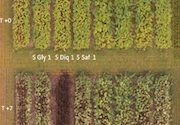 Accurate application timing of desiccants is critical to ensure uniform seed quality and maturity of fababean. Go too early and risk poor seed fill. Go too late and crop drydown isn’t achieved without the possibility of reduced yield and quality from frost and pod shattering. Recent field trials in Alberta compared the efficacy of a variety of desiccants on fababean to figure out what worked best.
» Learn more
Accurate application timing of desiccants is critical to ensure uniform seed quality and maturity of fababean. Go too early and risk poor seed fill. Go too late and crop drydown isn’t achieved without the possibility of reduced yield and quality from frost and pod shattering. Recent field trials in Alberta compared the efficacy of a variety of desiccants on fababean to figure out what worked best.
» Learn more |
| |
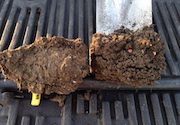 Controlled traffic farming (CTF) is management intensive, but pays in long term benefit to soil health. A University of Alberta study rated the CTF system on soil quality improvement, timeliness, resiliency, learning and continuous improvement. The participating producers learned a lot about its effect on soil, crop emergence and weed populations.
» Learn more
Controlled traffic farming (CTF) is management intensive, but pays in long term benefit to soil health. A University of Alberta study rated the CTF system on soil quality improvement, timeliness, resiliency, learning and continuous improvement. The participating producers learned a lot about its effect on soil, crop emergence and weed populations.
» Learn more |
| |
| Inputs: THE PODCAST BY TOP CROP MANAGER | | | | | | | | | | | | | | | | |
|
| |
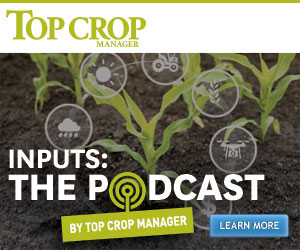
With the launching of two pea-protein processing facilities in Manitoba, the third episode of Inputs: The Podcast by Top Crop Manager explores some of the opportunities and challenges for growing peas.
During the first half of the episode, associate editor Stephanie Gordon provides some context on where the pea-protein industry is and where it’s going. For the second half, Cassandra Tkachuk, production specialist with the Manitoba Pulse and Soybean Growers (MPSG), joins in to provide an agronomy angle to the topic.
» Listen here |
| |
|
| |
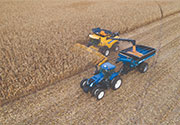 Spring can bring the challenges of hectic schedules, volatile weather and unfavorable soil conditions. Fall typically allows for more time and resources to prepare for the following growing season. Fall application of ESN allows growers to eliminate spring fertilization and planting delays. A blend of ESN with P and K fertilizers offers one complete fertility package.
» Learn more
Spring can bring the challenges of hectic schedules, volatile weather and unfavorable soil conditions. Fall typically allows for more time and resources to prepare for the following growing season. Fall application of ESN allows growers to eliminate spring fertilization and planting delays. A blend of ESN with P and K fertilizers offers one complete fertility package.
» Learn more |
|
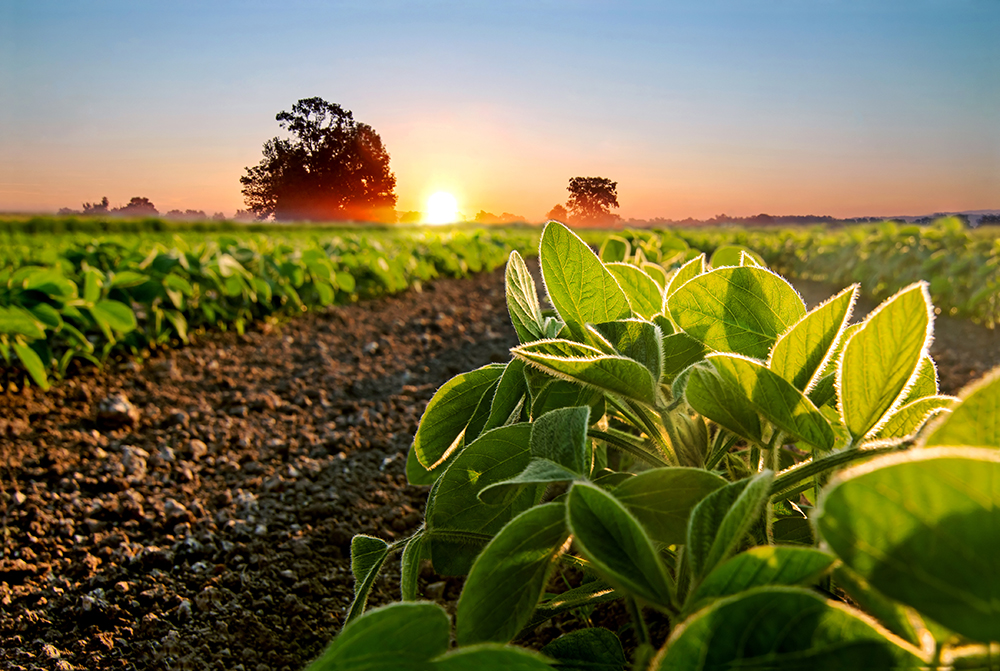 Q: Will ESN boost yields on irrigated and dryland soybeans?
A: We have done some research on ESN applications on soybeans in recent years. This Mississippi study demonstrated how ESN can increase yields in irrigated soybean production. ESN applied at an optimum rate at V4 or R1 growth stages increased yields by five or seven bushels per acre, respectively.
» Keep reading
Q: Will ESN boost yields on irrigated and dryland soybeans?
A: We have done some research on ESN applications on soybeans in recent years. This Mississippi study demonstrated how ESN can increase yields in irrigated soybean production. ESN applied at an optimum rate at V4 or R1 growth stages increased yields by five or seven bushels per acre, respectively.
» Keep reading |
| |
|
| |
|
|
| |
| |









